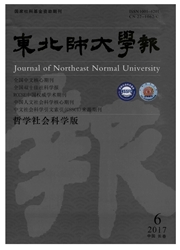

 中文摘要:
中文摘要:
外汇储备增长对国家宏观经济发展具有重影响,笔者以我国总投资、总储蓄和总出口为考察对象,通过建立时变参数状态空间模型分析不同时期外汇储备的宏观经济效应。实证结果表明,除1993年到1997年外汇储备与消费负相关,1993年到2003年外汇储备与投资负相关外,其他时期外汇储备增加则有利于消费、投资和出口。但2000年之后,外汇储备对三个宏观经济变量的影响逐渐减小。
 英文摘要:
英文摘要:
The growth of foreign exchange reserves have significant impacts on the country's macroeconomic development In this paper, we choose China's total investment, total savings and total exports as the study object to analyze the macroeconomic effects of different periods of foreign exchange reserves through the state-space model. The empirical results show that foreign exchange reserves had negatively correlated with consumption from 1993 to 1997 and had negatively correlated with investment from 1993 to 2003. At other times, the foreign exchange reserves would increase consumption,investment and exports. However, the impact of foreign exchange reserves of the three macroeconomic variables decreased after 2000.
 同期刊论文项目
同期刊论文项目
 同项目期刊论文
同项目期刊论文
 期刊信息
期刊信息
